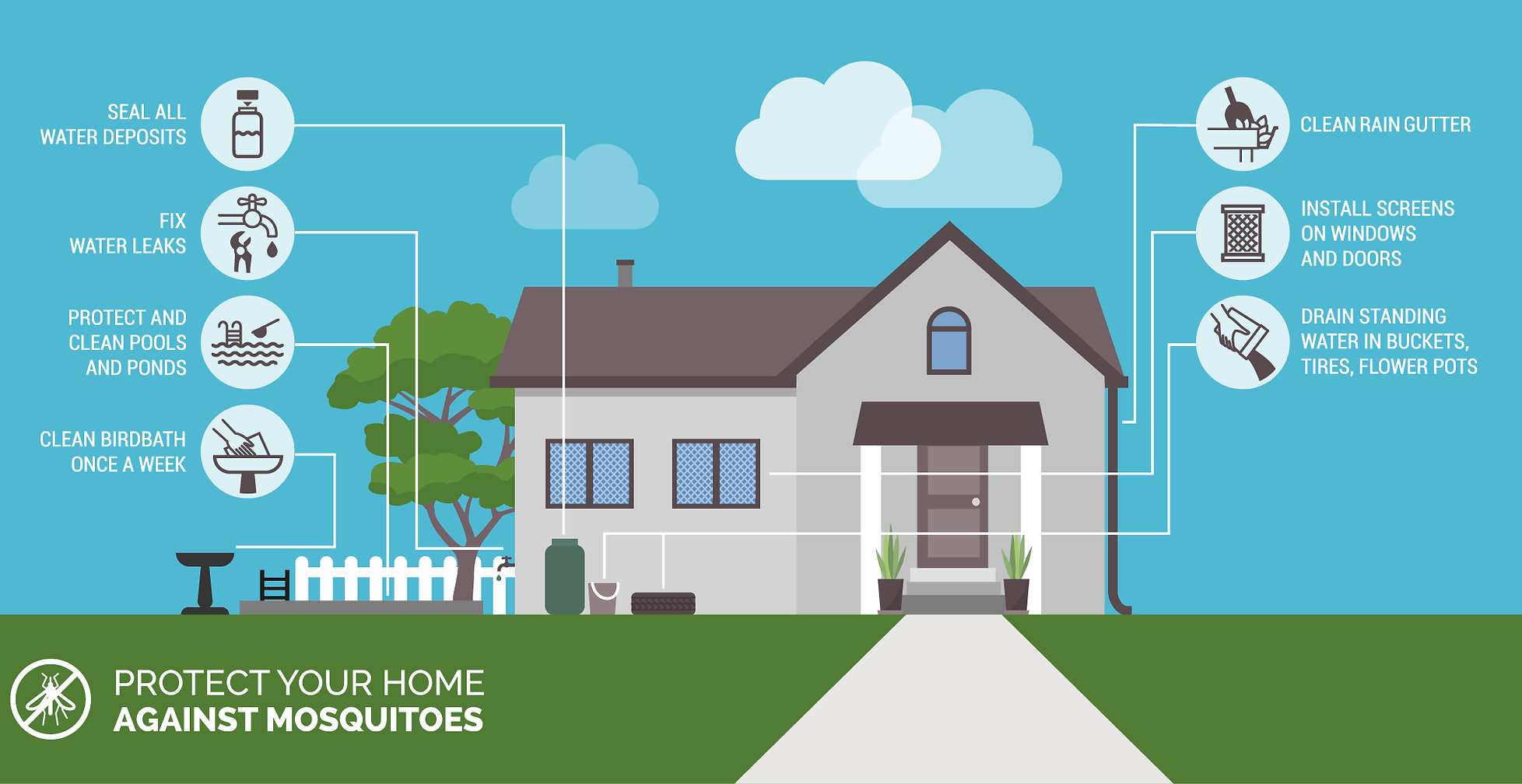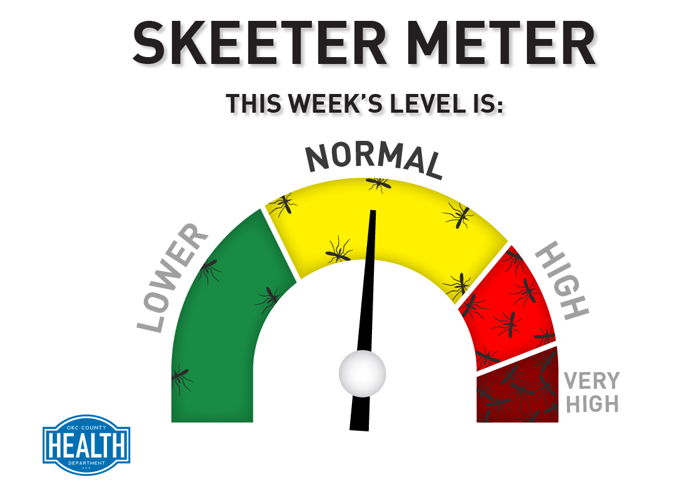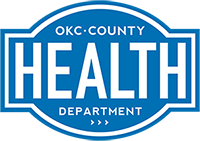Mosquito Info
Prevention Tips: Dress. Deet. Drain. Prepare!
Mosquito-borne Diseases
Mosquito-borne diseases are those spread by the bite of an infected mosquito. Diseases that are spread to people by mosquitoes include West Nile virus, Zika virus, Chikungunya virus, dengue, and malaria.
Although people may not become sick after a bite from an infected mosquito, some people have a mild, short-term illness or severe or long-term illness. Severe cases of mosquito-borne diseases can cause death.
To reduce your risk of illness use insect repellent, wear long-sleeved shirts and long pants and follow the recommendations below to protect your home.

Weekly Skeeter Meter Update
The Skeeter Meter is updated weekly during mosquito season. The factors considered in the calculation include temperature for the week, number of mosquitoes trapped, if disease is identified among captured mosquitoes, number of consumer complaints, and number of confirmed WNV cases.

last updated: 11/01/2024
Updated weekly during mosquito season

last updated: 11/01/2024
Updated weekly during mosquito season
West Nile Virus
West Nile virus (WNV) is the leading cause of mosquito-borne disease in the continental United States. It is most commonly spread to people by the bite of an infected mosquito. Cases of WNV occur during mosquito season, which starts in the summer and continues through fall. There are no vaccines to prevent or medications to treat WNV in people.
Most people (8 out of 10) infected with West Nile virus do not develop any symptoms.
Febrile illness (fever): About 1 in 5 people who are infected develop a fever with other symptoms such as headache, body aches, joint pains, vomiting, diarrhea, or rash. Most people with this type of West Nile virus disease recover completely, but fatigue and weakness can last for weeks or months.
Serious symptoms: About 1 in 150 people who are infected develop a severe illness affecting the central nervous system such as encephalitis (inflammation of the brain) or meningitis (inflammation of the membranes that surround the brain and spinal cord).
-
Symptoms of severe illness include high fever, headache, neck stiffness, stupor, disorientation, coma, tremors, convulsions, muscle weakness, vision loss, numbness and paralysis.
-
Severe illness can occur in people of any age; however, people over 60 years of age are at greater risk. People with certain medical conditions, such as cancer, diabetes, hypertension, kidney disease, and people who have received organ transplants, are also at greater risk.
-
Recovery from severe illness might take several weeks or months. Some effects to the central nervous system might be permanent.
-
About 1 out of 10 people who develop severe illness affecting the central nervous system die.
West Nile Virus Stories
We met with a few community members who have been directly impacted by West Nile Virus. By sharing their stories they hope to help educate others and prevent families from experiencing the disease first hand.
Zika Virus
Zika virus disease (Zika) is caused by the Zika virus and is spread to people primarily from the bite of an infected Aedes species mosquito. These mosquitoes bite most actively in the daytime but also bite at night. There is currently no vaccine to prevent Zika infection.
Most people with Zika do not become ill and may not realize they have been infected. If symptoms do occur, they most commonly include:
-
Fever, rash, joint pain, and red eyes
-
Are mild
-
Appear 3 to 12 days after the mosquito bite
-
Last a few days to a week
Zika and Sexual Transmission
-
Zika can be passed through sex from a person who has Zika to his or her sex partners.
-
Zika can be passed through sex, even if the person does not have symptoms at the time.
-
For additional updated information visit CDC Zika and Sexual Transmission.
Are pregnant women at special risk?
-
Zika infection during pregnancy can cause certain birth defects.
-
Pregnant women should NOT travel to an area with active Zika virus transmission.
-
Pregnant women, women who may become pregnant, and people with sexual partners who are or may become pregnant should talk to their healthcare providers about the risk of Zika.
-
For additional updated information visit CDC Zika pregnancy.
Protect Yourself.
Take precautions when outdoors to protect yourself and your family from mosquito-borne and tick-borne illnesses.
Fight the Bite!
Protect
Yourself.
Take precautions when outdoors to protect yourself and your family from mosquito-borne and tick-borne illnesses. Fight the Bite!

